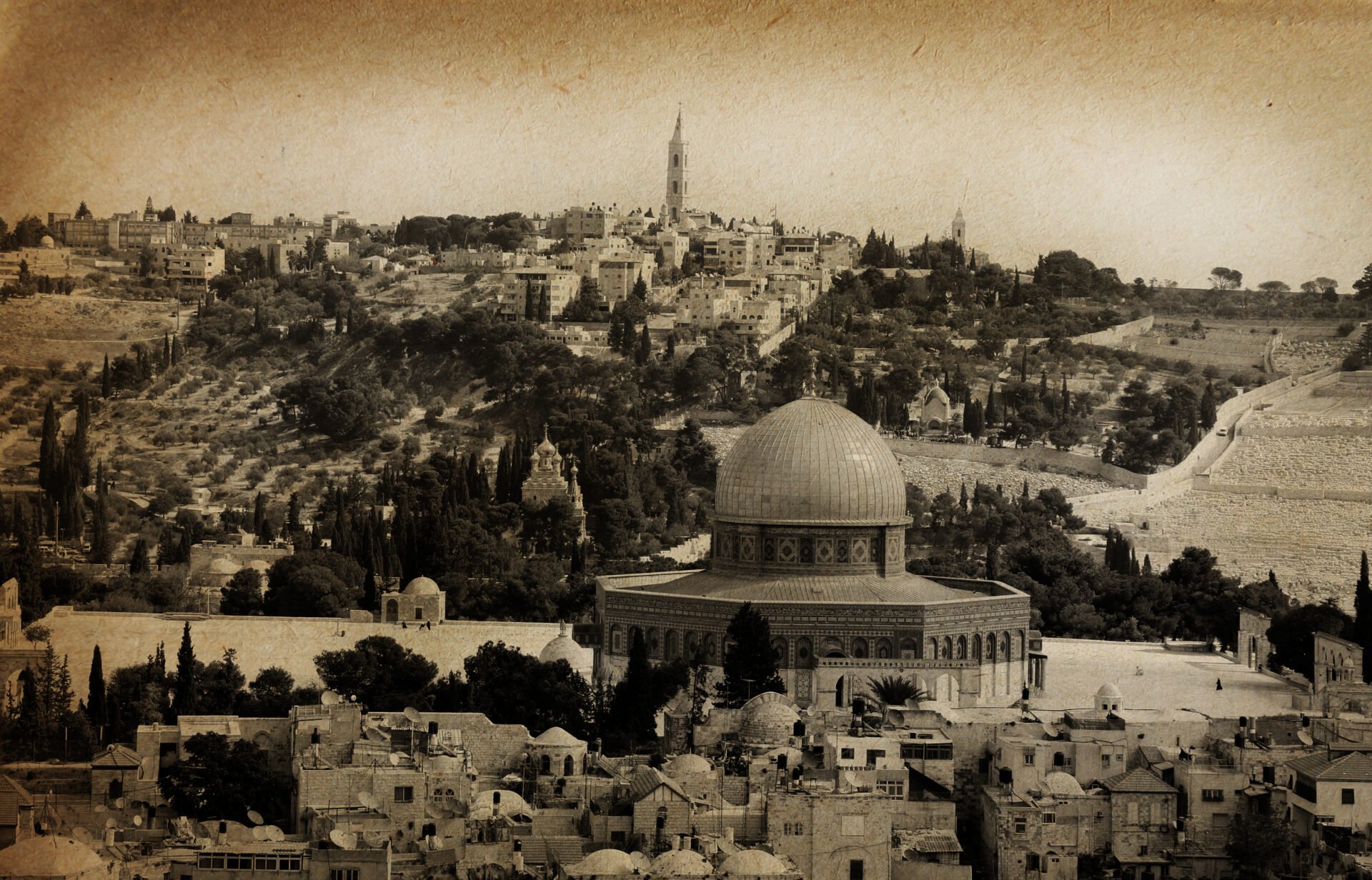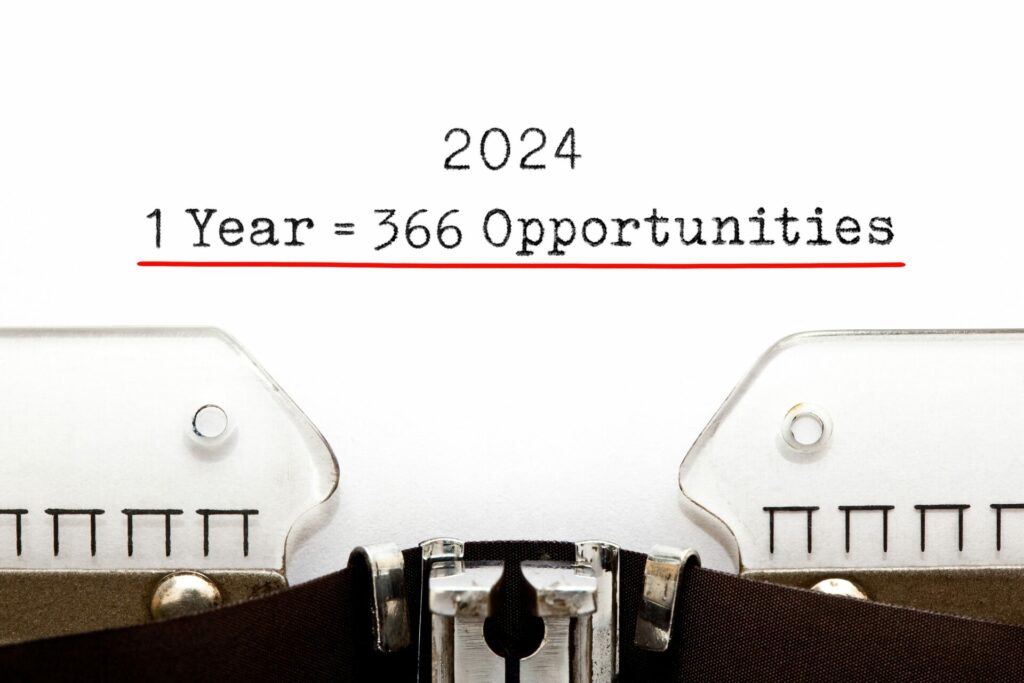The past year has seen Gazans desperately resisting Israel’s genocidal attempt to physically wipe out an entire people and their environment. But there is a further existential threat to Palestine – the eradication of their material history, particularly that of the Nakba.
Celebrated historian, Ilan Pappe, has formed The Nakba Memorial Foundation (NMF), a charity aimed precisely at safeguarding the material documents of Palestinian history. The Foundation is establishing a Centre for Documentation on the Nakba (CDN), a physical hub to house, digitalise and curate thousands of primary colonial documents and other historical material relating to the Nakba or ‘catastrophe’ – when more than 750,000 Palestinians were driven by Israeli militias from their homes in 1948 into permanent refugee camps in neighbouring countries.
The NMF has had to move quickly to prevent attempts to suppress documentary proof of this original illegal act of ethnic cleansing. Israel reclassified and limited access to colonial documentation detailing the Nakba in 2016. And most recently, the bombardment of Gaza targeted important archives in The Strip, including universities, libraries and institutes.
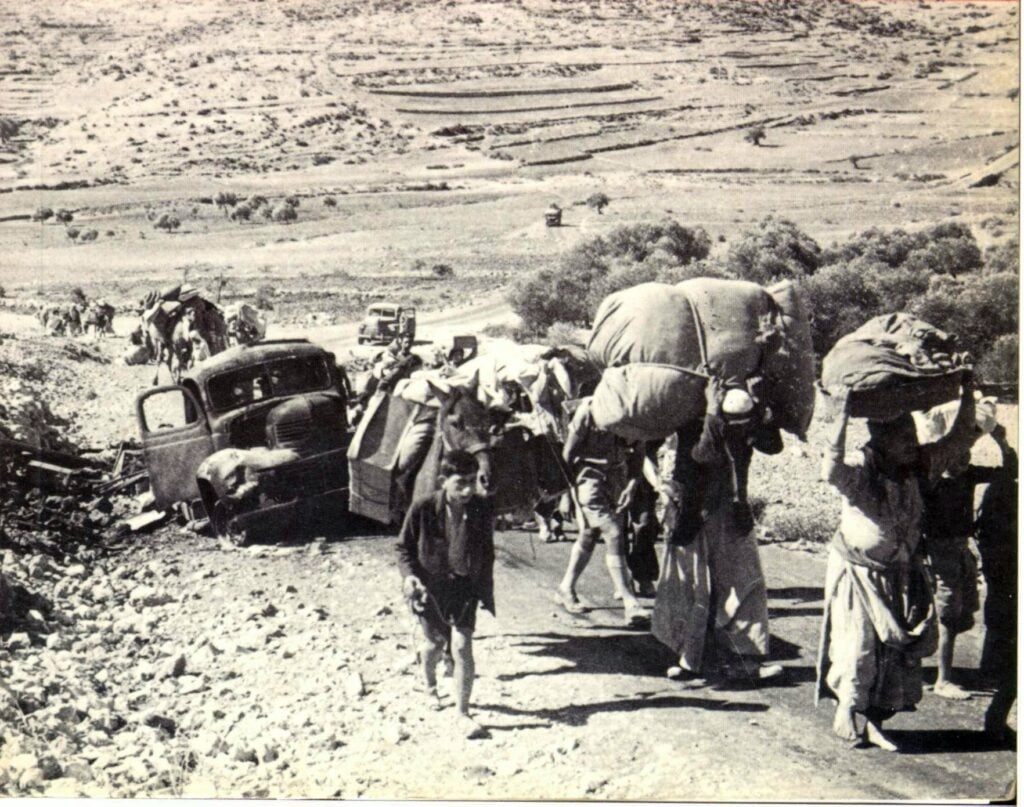
Nakba Archive, Research Centre and Cultural Hub in London
Together with an impressive line-up of Palestinian scholars, activists and intellectuals that comprise the NMF’s Trustees, Professor Pappe set about sourcing a London-based physical site which will hold the CDN and operate as a Research Centre and a cultural space for students and the public to access the all-important historical papers.
‘I’ve had this dream for perhaps 10 years,’ Professor Pappe tells The Ethicalist. ‘But our idea took on a more imperative quality. I thought that the material should be seen by future generations of historians, and scholars and activists; because the Israeli campaign of denying the Nakba continues all the time.’
The Israeli campaign of denying the Nakba continues all the time…and it was very important to make sure that whoever doubts – for genuine or cynical reasons – the existence of that evidence, will be able to have direct access to primary materials’
Professor Ilan Pappe
‘It was very important to make sure that whoever doubts, for genuine or cynical reasons, the existence of that evidence, will be able to …have direct access to those primary materials.’
But has the NMF acted soon enough? Have documents been irretrievably lost?
‘Luckily a lot of historians photocopied many of these documents; I and others began to coordinate and talk to each other…and people were very generous in providing us with copies of their documents,’ Professor Pappe said.
He continued: ‘Our project has grown to being more than just the Israeli archival material. The whole idea that we developed was to fight the Nakba denial not just with Israeli documentation, but with educational programmes, cultural programmes – and that’s why we’re very hopeful to have a physical centre….. But the drive began with this realisation that the Nakba is not only denied but there is an active attempt to conceal the documents.’
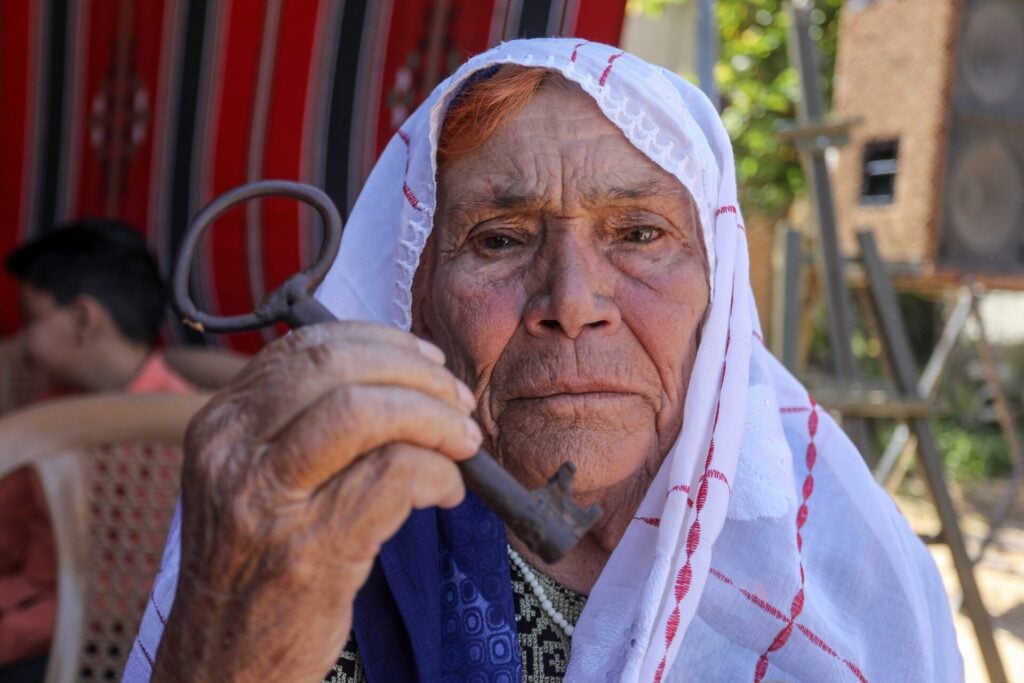
He added: ‘After the last year, it’s very clear that the Israeli project is to wipe out Palestine, the country and the peoples as an idea…for example, the attack on UNRWA…is part of the attack on the memory of the Nakba.’
UNRWA is the United Nations Relief and Works Agency for Palestinian Refugees, established in 1949 to aid the many Palestinian refugees created after the establishment of Israel. Last year Israel banned the organisation from entering the enclave.
‘So it became a huge project of importance – the archives is a very important part of it – but it’s not the only reason we are doing it.’
For those seeking research opportunities at the centre, Pappe is not looking to ape universities. ‘The objective is to allow people to spend time with us and to help them work on what interests them in this context of the Nakba in their struggle against the Nakba denial. They could be PhD students who need a year to work on it; they could be undergrads who want to learn more because their universities – or the High School even – do not provide enough material and information. It could be more established scholars who are unable to get a post-doctoral or fellowship in any other place, and they would like to work with us.’
A creative cultural space to celebrate Palestinian life, art, culture and traditions is the other function the physical centre will serve. Talking about Palestine and Palestinian stories is under extreme pressure. Performers or activists sometimes find it hard to find venues to hold events. The cultural hub will provide artists, students, academics, activists and members of the community a safe space to discuss Palestinian issues, and carry out their work.
Thinking Palestine: beyond enforced invisibility
Pappe has spent many years talking to politicians and journalists informally about Palestinian history and politics and feels there is an increasing need, particularly under the current climate, to have somewhere to talk things through. Younger people and activists ask for information or want to walk through arguments.
‘The cultural hub will institutionalise what some of us can bring with respect to the media, to education and to politics & to civil society in an organised way,’ he said.
The centre is to be sited in London for a significant reason:
‘We need to remind people of Britain’s complicity in the Nakba. No other foreign country in 1948 was as responsible for what happened as was Britain,’ Pappe says.
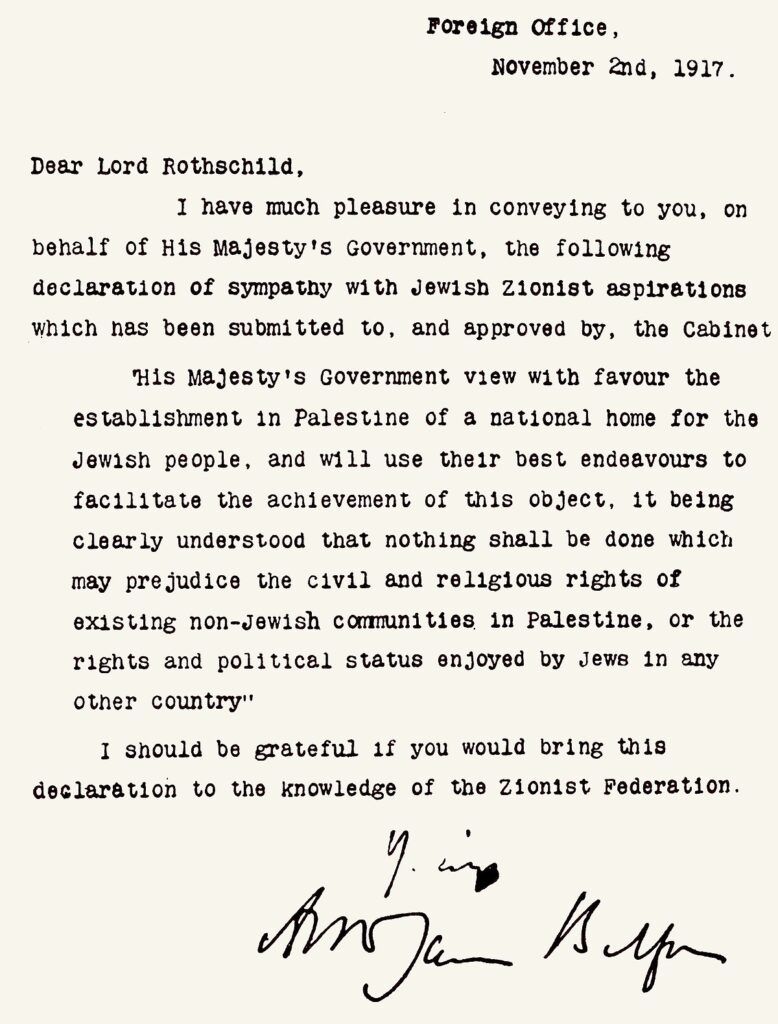
He continues: ‘When Britain celebrated – I think Theresa May was the PM – celebrated the centenary of the Balfour Declaration .. and refused to adhere to any Palestinian request for at least an apology…it became clear that [the centre should be in] Britain, if.. not in Palestine..because of its history, its complicity and its responsibility.’
He adds: ‘We thought this could really be a reminder for people in Britain but also for people in the world that what we have seen in the last 16 months for instance, has an historical context, and that historical context is one to which Britain contributed a lot before 48, during 1948 and even after that.’
London’s place at the heart of the British Empire means it is an appropriate site for another reason; activities will be within touching distance of other radical social movements fighting empire and racism. Among Pappe’s dynamic team is Zainab Abbas, a hugely influential figure from the 70s onwards in black political activism. Abbas hopes the CDN will settle permanently in Brixton, close to the Black Cultural Archives. She envisages celebrity black American academics such as Angela Davis and Robin Kelley visiting and lending their support and expertise.
Creative curating
The Foundation has not only taken on Nakba denial and the preservation of history – it is pushing technological boundaries in representing history itself in its digitising, curating and arrangement of the Nakba documents.
The beautiful and moving film ‘Re-reading the Colonial Archive’, created by Dr Rona Sela and animated by Dana Durr, demonstrates the innovative approaches available to curating and reading Palestinian history now. It utilises film and audio narration techniques with sequences of digitised documents in an arrangement that apes the processes of historical research, and even resembles thinking and memory.
In the film, the archive arranges the ‘Colonizing Palestine’ documents into two parts: ‘The Surveys’ (surveillance reports of Palestinian villages carried out by Zionists before 1948); and Part Two, the material on the Nakba itself and afterwards. Part Two includes film footage of Zionist military operations against villages, as well as admin documents where settlers ask for funds or permissions to build on land that has been forceably cleared. The language used in the documents is significant: in one case, an administrator refers to ethnically cleansed land as ‘abandoned’ land.
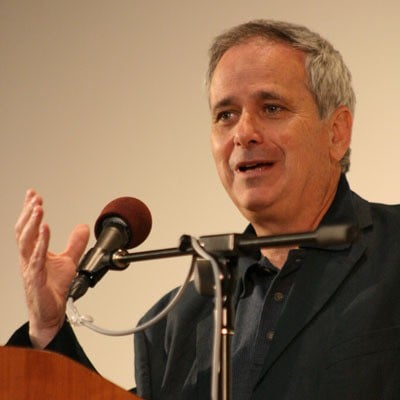
The resemblance to processes of thinking and memory are an effect of shots of documents transitioning (or dissolving) from animated splashes of ink, into still aerial photographs of villages and ground shots of those villages. This is overlaid with textual and musical narration.
The film brings the past alive.Encouraging creativity is at the heart of the NMF project and this innovative way into history will engage and encourage people to see history’s importance in the present, and its possibilities. It both challenges historiography and honours it with interactivity and digitally-inflected ways of reading and thinking.
For more information on the Nakba Memorial Foundation, and to donate, go to the website at nakbamf.org/

